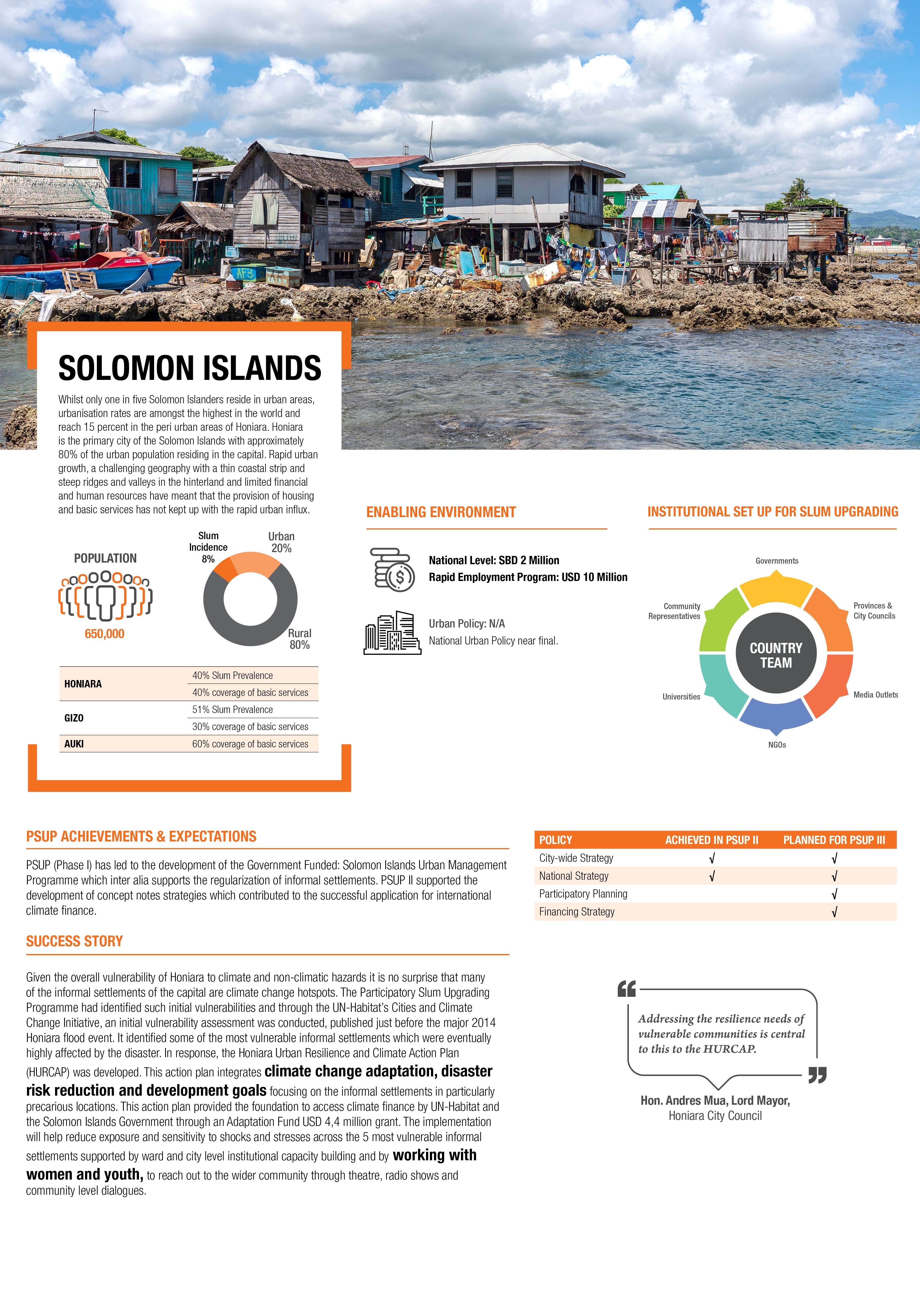Solomon Islands
The Solomon Islands is a chain of six large volcanic islands to the southeast of Papua New Guinea, as well as about 900 smaller outlying islands and atolls. Many of them are mountainous and heavily forested.
The population is distributed over a large number of these islands, which makes service provision in general very challenging. This includes providing drinking water, sanitation and housing in the urban centres. Most of the people live in small rural villages, while the urban population is concentrated on the three main islands Guadalcanal, Malaita and Gizo. The demand for housing in those areas outnumbers the supply, leading to high land and housing prices and multiple land sales, whereas slums in the country are situated in the most unsafe areas. Occupying hill slopes and riverbanks makes them vulnerable to natural disasters, like flash floods and landslides.
The Government of the Solomon Islands intensified its engagement in the urban areas with setting up of the Solomon Island Urban Management Program (SUMP) in 2014, with an initial budget of USD 375,000. With this development budget the Urban Profiling was rolled out to several cities, including the capital city of Honiara on Guadalcanal Island. A Climate Change Vulnerability Assessment for Honiara found that slums are the most vulnerable areas in the city and would require the highest attention.
The PSUP raised awareness on the importance of public spaces and facilitated contact with the UN-Habitat Public Space Program, which started in September 2015. This began with training on the thematic areas and a workshop to redesign one of the main public spaces in Honiara, which is also close to a slum neighbourhood. The PSUP gave further valuable inputs to the post disaster phase of the April 2014 Flash Floods in the capital Honiara. This included strengthening the data collection and analysis of destroyed houses, developing strategies for temporary housing, long term relocation and build-back-better options integrated in a more climate sensitive planning approach.
Through the PSUP, the partner ministry as well as staff from all departments of the Honiara City Council have been trained on participatory processes in decision making, urban assessment, results-based management, gender and youth in the city and the human rights-based approach. They have also been sensitised on planning, basic urban services, housing and land issues in connection with slums in urban areas. Solomon Islands is implementing Phase 2 of PSUP in partnership with Ministry of Lands, Housing and Survey and Honiara City Council. Phase 1 was implemented in the cities of Honiara, Auki and Gizo.


